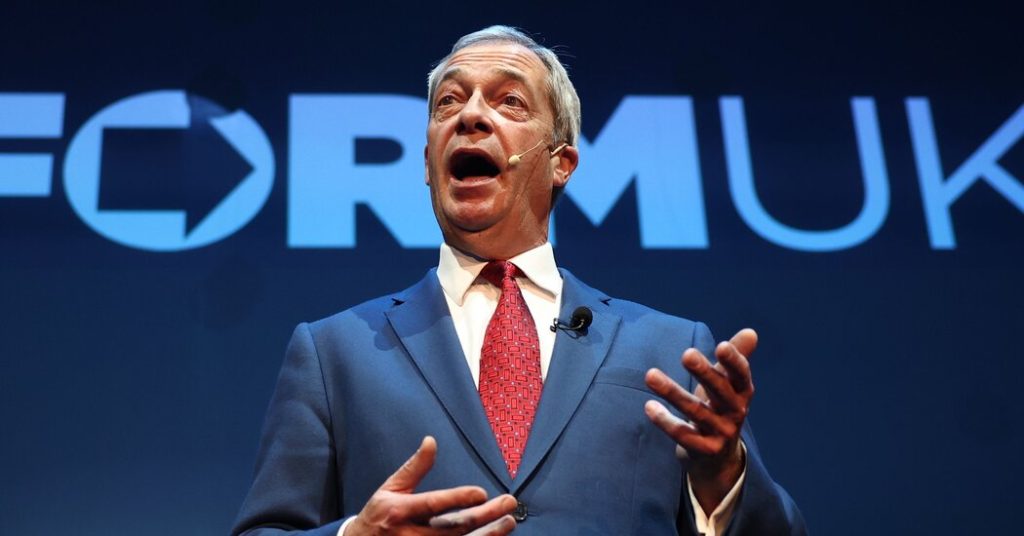The sudden rift between Elon Musk and Nigel Farage, leader of the British Reform U.K. party, highlights the volatile nature of alliances within the sphere of populist politics. Just weeks prior, Musk had publicly championed Farage and his party, portraying them as a solution to Britain’s perceived woes. This support abruptly ended with Musk’s declaration on X (formerly Twitter) that Reform U.K. needed new leadership, explicitly stating that Farage lacked the necessary qualities. This dramatic shift stemmed from Farage’s refusal to endorse Musk’s call for the release of Tommy Robinson, a far-right figure imprisoned for multiple offenses. Farage publicly distanced himself from Robinson, citing his history of criminal convictions and Islamophobic rhetoric, a stance that directly contradicted Musk’s position. This public disagreement exposed a fundamental clash of principles within the populist movement, even between figures who ostensibly shared common ground.
Musk’s involvement in British politics extended beyond his support for Reform U.K. He engaged in a series of provocative posts on X, including false accusations against Labour leader Keir Starmer and an unconstitutional suggestion that King Charles III dissolve Parliament. These actions mirrored Musk’s previous interventions in the American political landscape and demonstrated his willingness to wield his influence internationally. His endorsement of the far-right Alternative for Germany party further underscored his growing engagement in European politics, particularly in countries where he perceived a threat to his interpretation of free speech. Musk’s actions suggest a pattern of aligning with figures and movements that challenge established political norms, often using his platform to amplify their messages and bypass traditional media channels.
The public break with Farage, however, revealed the limits of Musk’s influence and the complexity of navigating the populist landscape. Farage, a seasoned politician with a long history of navigating the populist wave, pushed back against Musk’s demand, emphasizing his commitment to his own principles. While acknowledging Musk’s support for him and his party, Farage asserted his autonomy, highlighting the tension between aligning with powerful figures and maintaining individual political integrity. This tension is particularly pronounced within populist movements, where charismatic leaders often attract a diverse range of followers who may not fully align on every issue.
The incident also sheds light on the transactional nature of some political alliances, particularly those forged in the digital age. Musk’s support for Farage and Reform U.K., much like his involvement in other political arenas, appeared driven by a specific agenda. His condemnation of the British government’s stance on online hate speech, coupled with his backing of Farage, suggests a strategic alignment with figures who share his views on these issues. Farage, in turn, seemingly welcomed the support of a high-profile figure like Musk, recognizing the potential benefits for his party. However, the Robinson issue proved a breaking point, revealing the fragility of their alliance when core principles clashed.
The fallout from this public disagreement carries potential consequences for both men. For Farage, the loss of Musk’s support could impact Reform U.K.’s fundraising efforts, potentially hindering the party’s growth and influence. While Farage maintained his political standing, the incident underscored the risks of aligning with unpredictable figures like Musk. For Musk, the episode further complicated his already controversial foray into European politics. While he garnered significant attention with his pronouncements, his influence appears limited. The decline in X users in Britain since his takeover suggests a potential disconnect between his online pronouncements and real-world impact.
Finally, the incident serves as a microcosm of the broader dynamics within the populist movement. The shifting alliances, the emphasis on individual personalities, and the use of social media to circumvent traditional political processes are all characteristic of this contemporary political phenomenon. The Musk-Farage rupture highlights the inherent instability of these alliances, driven by individual agendas and susceptible to fracturing when core principles collide. It also underscores the power of social media platforms in shaping political narratives and influencing public opinion, even as their user bases fluctuate and their long-term impact remains uncertain.


